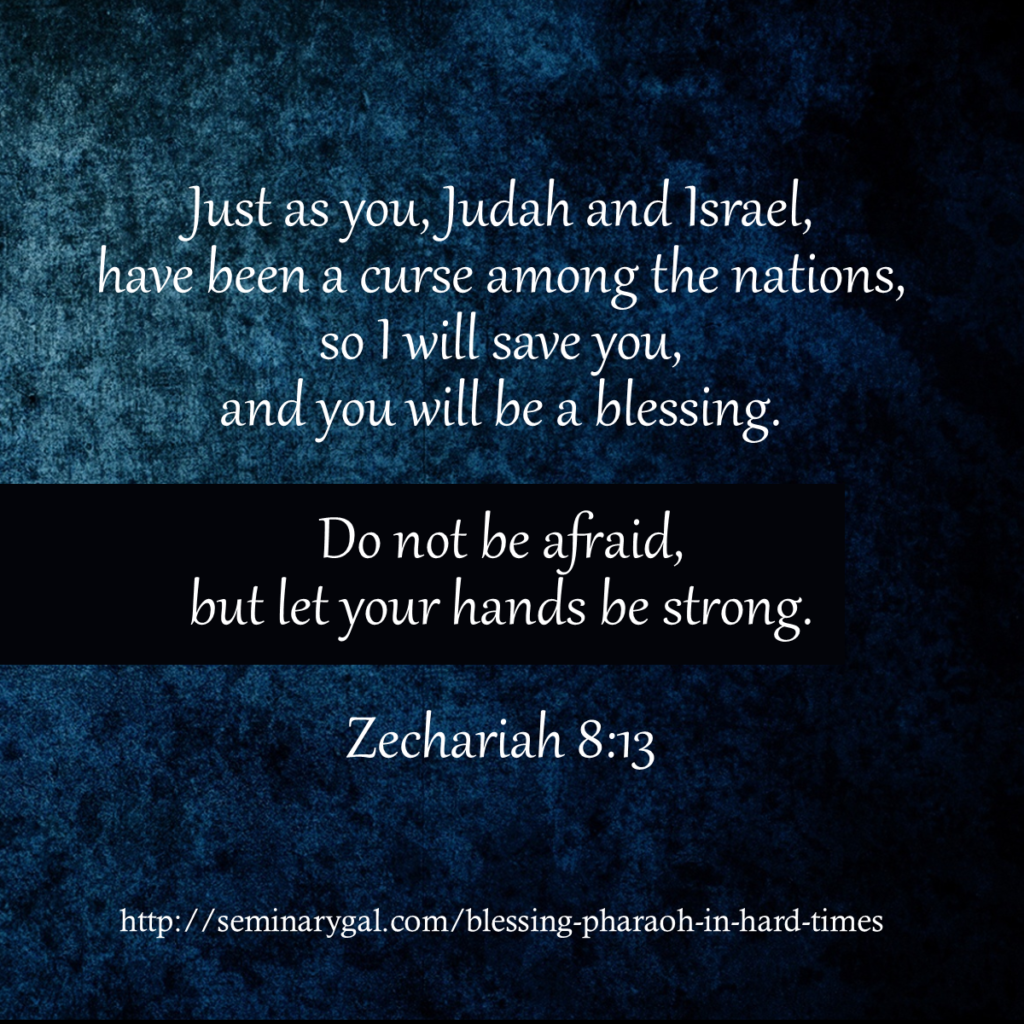Blessing Pharaoh in Hard Times
Genesis 47:7 Then Joseph brought his father Jacob in and presented him before Pharaoh. After Jacob blessed Pharaoh, 8 Pharaoh asked him, “How old are you?” 9 And Jacob said to Pharaoh, “The years of my pilgrimage are a hundred and thirty. My years have been few and difficult, and they do not equal the years of the pilgrimage of my fathers.” 10 Then Jacob blessed Pharaoh and went out from his presence.
Blessing from beginning to end, Jacob was fulfilling the covenant God made with his grandfather, Abraham: “All peoples on earth will be blessed through you” (Genesis 12:3). Jacob was becoming a great nation and all peoples would be blessed. He just didn’t know it because he was living in the flow of history, and it would be many generations before its complete fulfillment.
To become that great nation would require wisdom, prosperity, and diligent work.
As we continue our series Joseph: A Life With Many Colors,
Genesis 47:11 So Joseph settled his father and his brothers in Egypt and gave them property in the best part of the land, the district of Rameses, as Pharaoh directed. 12 Joseph also provided his father and his brothers and all his father’s household with food, according to the number of their children.
Now Pharaoh would be blessed in practice, not just words. It was time to implement Joseph’s plan–the one laid out way back in the days of dream interpretation.
Genesis 47:13 There was no food, however, in the whole region because the famine was severe; both Egypt and Canaan wasted away because of the famine. 14 Joseph collected all the money that was to be found in Egypt and Canaan in payment for the grain they were buying, and he brought it to Pharaoh’s palace.
15 When the money of the people of Egypt and Canaan was gone, all Egypt came to Joseph and said, “Give us food. Why should we die before your eyes? Our money is all gone.” 16 “Then bring your livestock,” said Joseph. “I will sell you food in exchange for your livestock, since your money is gone.” 17 So they brought their livestock to Joseph, and he gave them food in exchange for their horses, their sheep and goats, their cattle and donkeys. And he brought them through that year with food in exchange for all their livestock.
18 When that year was over, they came to him the following year and said, “We cannot hide from our lord the fact that since our money is gone and our livestock belongs to you, there is nothing left for our lord except our bodies and our land. 19 Why should we perish before your eyes– we and our land as well? Buy us and our land in exchange for food, and we with our land will be in bondage to Pharaoh. Give us seed so that we may live and not die, and that the land may not become desolate.”
20 So Joseph bought all the land in Egypt for Pharaoh. The Egyptians, one and all, sold their fields, because the famine was too severe for them. The land became Pharaoh’s, 21 and Joseph reduced the people to servitude, from one end of Egypt to the other. 22 However, he did not buy the land of the priests, because they received a regular allotment from Pharaoh and had food enough from the allotment Pharaoh gave them. That is why they did not sell their land.
23 Joseph said to the people, “Now that I have bought you and your land today for Pharaoh, here is seed for you so you can plant the ground. 24 But when the crop comes in, give a fifth of it to Pharaoh. The other four-fifths you may keep as seed for the fields and as food for yourselves and your households and your children.”
25 “You have saved our lives,” they said. “May we find favor in the eyes of our lord; we will be in bondage to Pharaoh.”
26 So Joseph established it as a law concerning land in Egypt– still in force today– that a fifth of the produce belongs to Pharaoh. It was only the land of the priests that did not become Pharaoh’s.

Think about it:
- Does Joseph’s plan seem extreme to you…and unfavorable to the people? What might have happened if Joseph’s plan weren’t implemented?
- Do hard times call for austerity measures, a tightening of the belt, etc.? In what ways do hard times put things in perspective?
- The people were grateful that their lives had been saved by the plan. The tax of one fifth and the rest of the crops belonging to people for food, for seed, and for posterity was seen in perspective. Could Pharaoh have just confiscated everything? Did he have that kind of power?
- In that context, how was selling grain to the people an act of mercy?
- Read Zechariah 8:13 “Just as you, Judah and Israel, have been a curse among the nations, so I will save you, and you will be a blessing. Do not be afraid, but let your hands be strong.” Why is suffering necessary for deliverance?


Leave a Reply